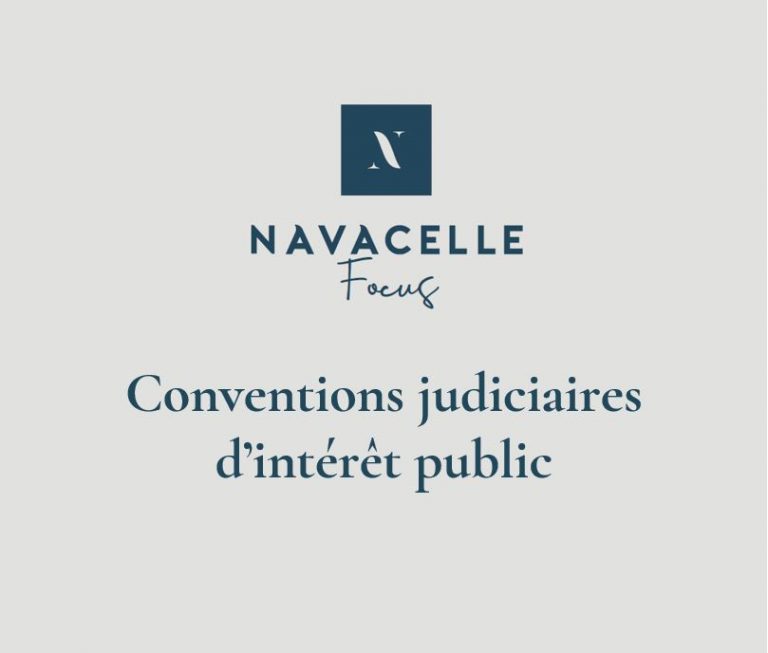On June 2, 2020, the French Ministry of Justice, issued a criminal procedure circular on the fight against international corruption which presents to all French Prosecutors the principles guiding judicial action at the stages of corruption detection, investigation, prosecution and sanction (“the Circular”) [1]. Although this circular doesn’t have the same binding effect as a law or a decree, it will definitely serve as a guideline, along with the French National Prosecutor Office (“PNF”) and French Anti-corruption Agency (“AFA”) guidelines.
This Circular is in line with the latest developments in French legislation and judicial practice since the Sapin II law and an additional demonstration of the willing of France to intensify its fight against corruption. Moreover, this circular comes after the anti-corruption body of the Council of Europe (“GRECO”) has stated that France has made efforts but the overall level of implementation of the 2018 recommendations was still insufficient [2], and before the OECD’s review of France in 2021.
I. The consolidation of the central role played by the PNF
The Circular gives the PNF a central role in the fight against international corruption. Its technical and legal expertise and the specific means at its disposal make it a “respected and indispensable interlocutor” on the international scene [3]. According to Nicole Belloubet, the former French Minister of Justice, the goal is to regain control over cases involving French companies tried before foreign judicial authorities, essentially the United States [4].
The Circular thus advises that mutual assistance requests be systematically processed with a view to possibly opening a mirror investigation by the PNF and that the PNF must be systematically informed of any corruption case that reaches the public prosecutor’s offices all over France. The Circular also invites the PNF to pay special attention to “national and foreign press articles” that would be likely to warrant in-depth verifications [5].
The text also enshrines the central role of the PNF in the coordination with others administrations and State agencies that have a role to play in the detection of international corruption (i.e. Ministry of Finance, French Anti-Corruption Agency, the French Development Agency (“AFD”); tax administration, diplomatic and consular posts, economic services and regional economic services, TRACFIN [6]).
II. The promotion of voluntary disclosure and cooperation
The Circular reminds that proceedings must be considered against both legal entities and individuals and provides guidelines for judicial action at all stages of criminal proceedings.
The Circular underlines that “the voluntary disclosure by companies of acts of corruption committed in the course of their international business activities by some of their members is a valuable source of detection” [7] and thus encourages companies to report themselves. It calls for the full application of the Sapin II law to any person “carrying out all or part of his economic activity on the French territory” [8] . It includes in particular the subsidiaries, branches and commercial offices of foreign companies. While the Ministry of Justice does not specify the degree of cooperation expected, it notes that companies should help prosecutors to identify key individual perpetrators [9]. To encourage companies to demonstrate this cooperation and to inform them of the advantages of the CJIP the PNF is invited to “develop exchanges with organizations representing French companies (MEDEF, AFEP) in order to define and implement a framework and practical incentives for spontaneous disclosure” [10].
For individuals, the Circular gives a straightforward and explicit indication that this provision should be used in the future [11]. Prosecution should be considered against employees involved in the corruption scheme, but also against executives and outside individuals involved in the commission of the offence. The Circular provides that any action by a guilty individual putting an end to the offence will result in a more lenient penalty. A procedure for prior admission of guilt – the Comparution sur Reconnaissance Préalable de Culpabilité (“CRPC”) – or referral to the criminal court, may be envisioned according to the background of the defendant as well as his degree of involvement [12].
This Circular is therefore a turning point, in that it stresses the importance of negotiated justice while recalling the tools that France has adopted to fight more effectively against international corruption, thus permitting efficient, proportionate and deterrent prosecution and sanction.














